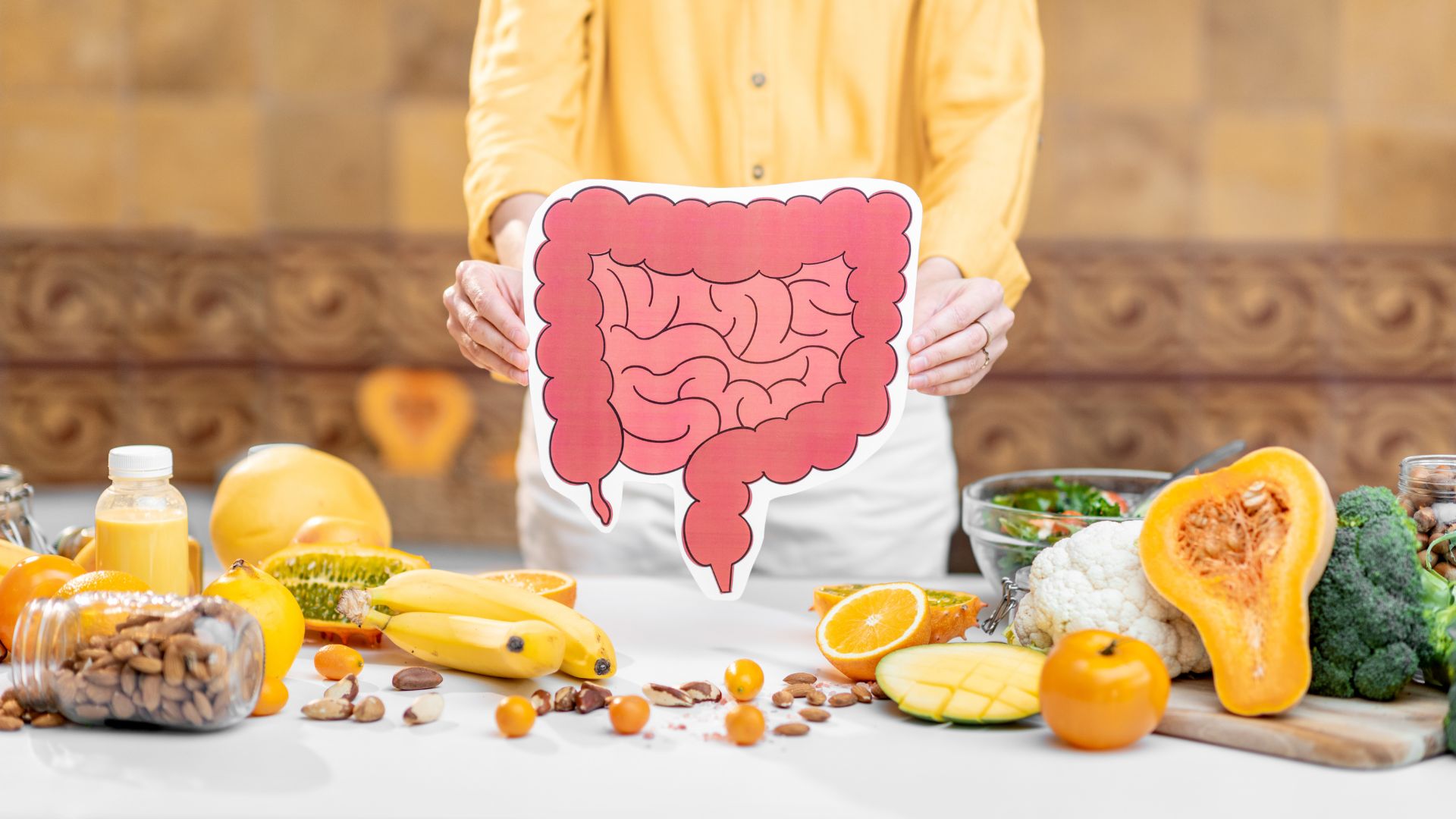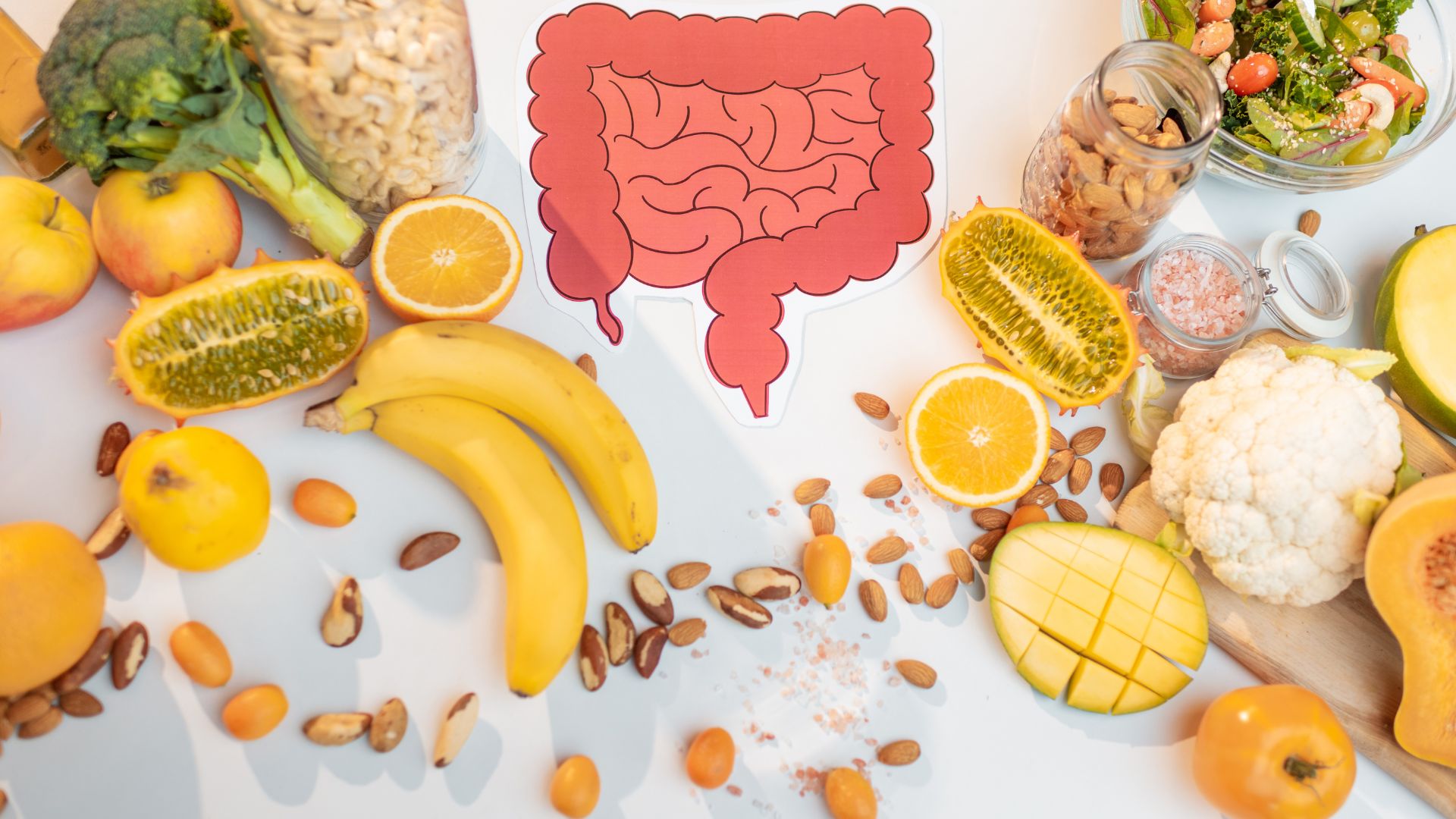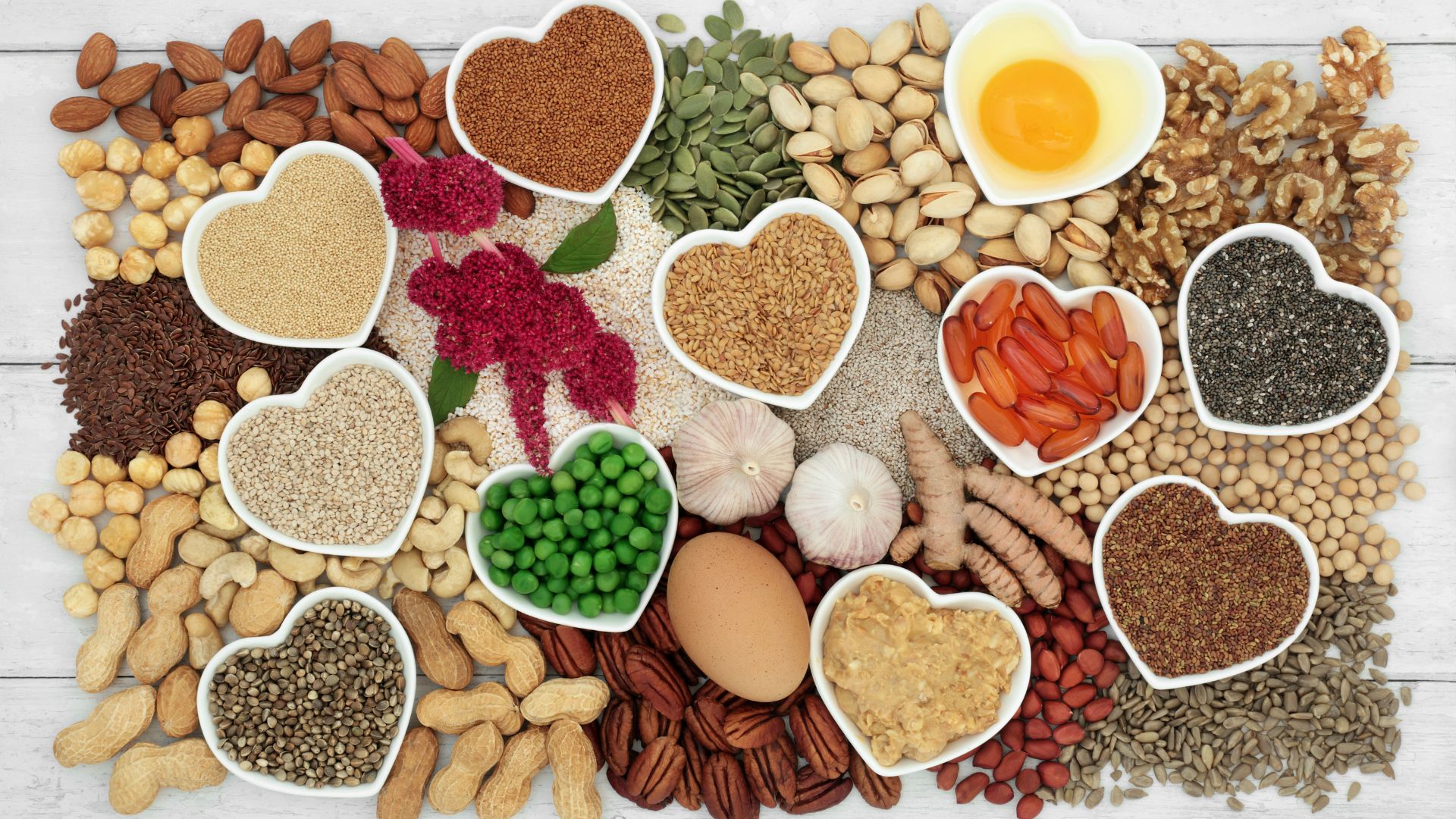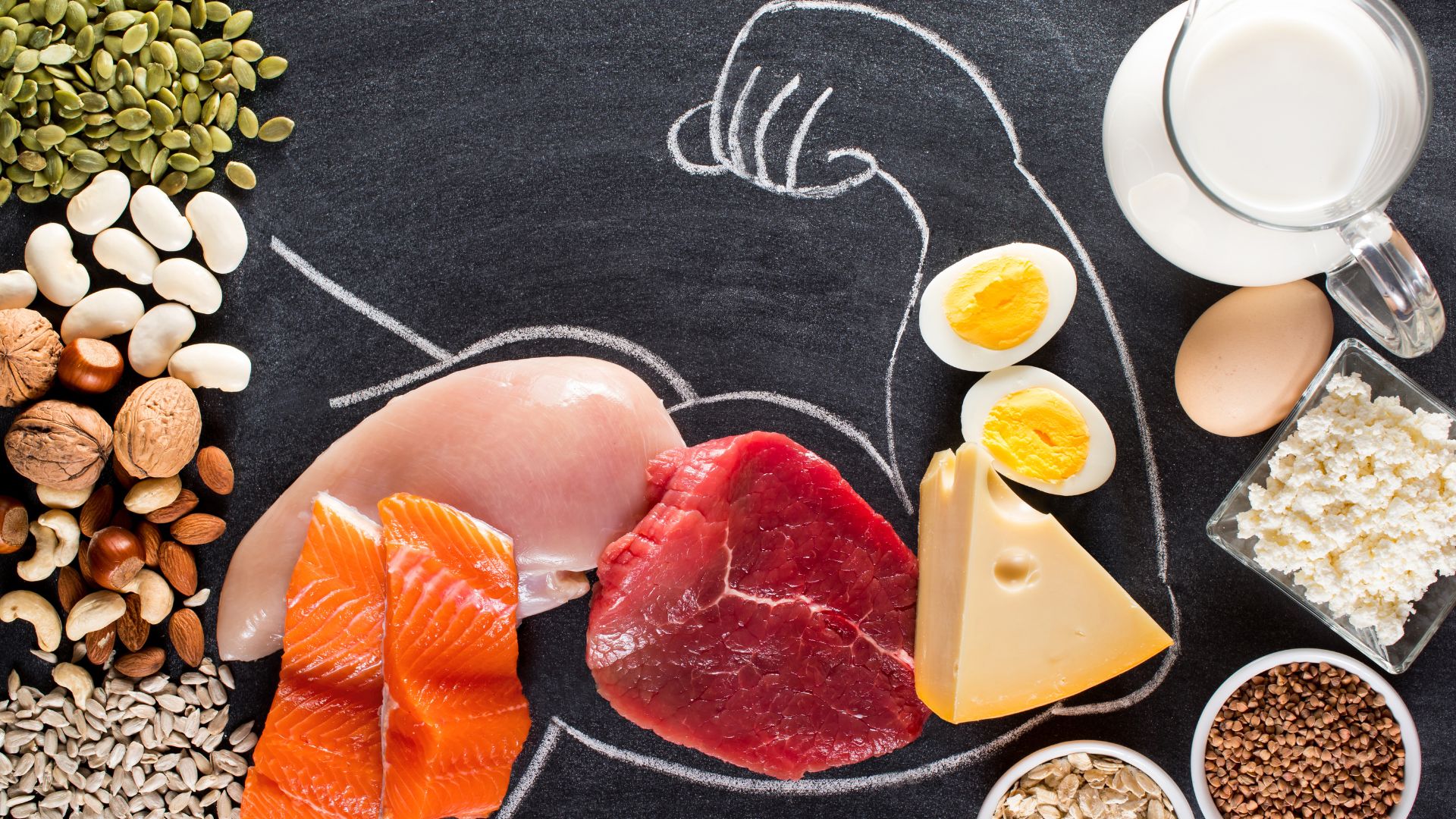How Gut Health Impacts Your Mood & Metabolism (and What to Eat to Improve It!)

When we think about metabolism, we often focus on exercise and diet—but did you know your gut health plays a crucial role too? Your gut is home to trillions of bacteria that not only help digest food and absorb nutrients but also influence how your body burns energy.
Research shows that having a diverse and balanced gut microbiome supports a healthy metabolism, while an imbalance may contribute to weight gain and metabolic issues. Some gut bacteria help your body use food efficiently, while others can cause you to store more calories from the same meal. Additionally, certain gut bacteria regulate hunger hormones, affect mental health, manage inflammation, and even impact how well your body breaks down fats.
Let’s dive deeper into how a thriving gut supports metabolism and what you can do to improve gut health through your diet.
Your Gut Bacteria and Metabolism
Inside your gut, there’s an entire ecosystem of microbes working behind the scenes. These bacteria play a role in:
- Breaking down food efficiently – A balanced gut microbiome improves nutrient absorption, ensuring you get the most energy from your meals.
- Regulating blood sugar – Healthy gut bacteria help prevent blood sugar spikes and crashes, keeping energy levels steady.
- Influencing fat storage – Some bacteria promote fat breakdown, while others encourage fat storage. The balance between these bacteria affects metabolism and weight regulation.
- Controlling inflammation – Inflammation in the gut can slow metabolism and make it harder for your body to use energy efficiently.
- Managing hunger hormones – Gut bacteria help regulate appetite by influencing hormones which increase hunger and which signals fullness.
- Linking to sleep and metabolism – Gut bacteria interact with the body’s circadian rhythm, influencing how well you sleep, which in turn affects metabolism and energy use.
The Link Between Gut Health and the Brain
Gut health plays a crucial role in mental health, as there is a direct communication pathway between the gastrointestinal system (your guts) and the brain. This link allows the gut to send signals to the brain, including the production of chemicals like serotonin, which helps to regulate mood. Good gut bacteria can influence mood and cognitive function, while an imbalance has been linked to conditions such as anxiety and depression. Additionally, inflammation in the gut can lead to increased levels of stress hormones, further impacting mental well-being. Therefore, maintaining a healthy gut through a balanced diet, probiotics, and lifestyle choices can significantly contribute to improved mental health outcomes.
The Link Between Gut Health and Weight
Research suggests that differences in gut bacteria may explain why some people gain or lose weight more easily than others. Studies show that individuals with a diverse gut microbiome tend to have a more efficient metabolism, while those with an imbalance (often due to a diet high in processed foods, antibiotics, or chronic stress) may struggle with weight management.
In particular, an overgrowth of certain bacteria has been linked to increased calorie absorption, higher inflammation levels, and reduced insulin sensitivity – all of which can make weight loss more challenging. Conversely, gut bacteria that thrive on fibre-rich foods can help regulate appetite, improve fat metabolism, and even reduce cravings for sugar and unhealthy fats.
The good news? You can actively support your gut health through the foods you eat!
How to Support Your Gut for a Happier Brain and a Faster Metabolism
Making small changes to your diet can have a significant impact on your gut health and metabolism. Here’s how:
1. Eat More Fibre
Fibre acts as fuel for beneficial gut bacteria, helping them thrive. Aim to include:
- Vegetables: Leafy greens, carrots, broccoli, Brussels sprouts
- Fruits: Berries, apples, bananas, pears
- Whole grains: Oats, brown rice, quinoa, barley
- Legumes: Lentils, chickpeas, black beans, kidney beans
2. Include Fermented Foods
Fermented foods contain probiotics which are live bacteria that help maintain a healthy gut microbiome. Try eating more:
- Yoghurt (with live cultures)
- Kefir
- Sauerkraut
- Kimchi
- Miso
- Tempeh
3. Avoid Too Many Processed Foods
Highly processed foods, added sugars, and artificial sweeteners can disrupt gut bacteria, leading to inflammation, slower metabolism, and digestive issues. Stick to whole, nutrient-dense foods as much as possible.
4. Stay Hydrated
Water helps move fibre through your digestive system, keeping gut bacteria happy and supporting metabolism. Aim for at least 1.5–2 litres of water per day.
5. Manage Stress & Get Enough Sleep
Stress and poor sleep can throw gut bacteria out of balance, negatively impacting metabolism. To support your gut health, try:
- Practicing relaxation techniques like deep breathing or meditation
- Engaging in gentle movement such as yoga or walking
- Establishing a regular sleep routine and aiming for 7–9 hours of sleep per night
The Bottom Line
Your gut health and metabolism are deeply connected. A balanced gut microbiome helps regulate appetite, improve digestion, and support efficient energy use, while an imbalance can slow metabolism and contribute to weight gain.
By eating more fibre, incorporating probiotic-rich foods, reducing processed foods, staying hydrated, and managing stress, you can nurture your gut bacteria and support a healthier metabolism. Small, consistent changes can make a big difference in how your body processes energy and keeps you feeling your best!
References
https://pmc.ncbi.nlm.nih.gov/articles/PMC5127273/








